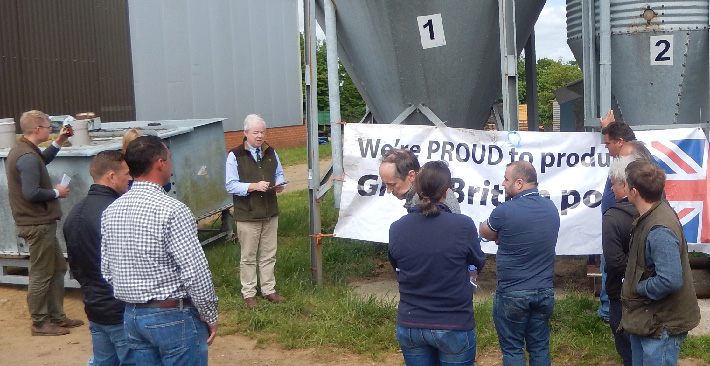Further significant improvements in the influential German pig price are turning bears into bulls with the influential German pig price rising for the third week running by a whopping 10 cents to stand at €1.60 compared with €1.40.
The current German price works out at 137.25p in our money which is almost exactly the same as the SPP and a very encouraging sign for hard pressed UK pig producers and their bank managers but don’t mention the war!
Although the benefit of higher global pig prices has yet to filter through to the UK to any great degree as far as the SPP is concerned, which went up .19p to 137.96p, there are signs that we could see something of a “spike” emerging soon as pig meat prices follow an upward track.
Weekly contribution prices are up by a copper in some places and stand on in others and these need to be corrected with most still between 125p and 129p whereas it was difficult to buy spot pigs at anything less than 134p and these contribution prices are well adrift of current market levels and need to move upwards.
Spot bacon was generally traded in the 134p-136p range and will soon be on par with SPP values.
With the Euro barely unchanged, worth 85.78p on Friday, most cull bids have moved up again by another 7p and are now nudging up towards the 80p mark.
Weaner prices are also less depressed than they were with the latest AHDB 7kg average quoted at £35.45 but no figure has been produced by the AHDB for 30kg weaners due to an insufficient sample.
Grain futures prices have remained at generally similar levels with London feed wheat quoted for May at £164.10/t and November at £148.6/t.
Spot ex farm UK wheat values have however improved by a couple of pounds over the week with the latest average price published at £162.70/t.
UK high pro soya prices are continuing to ease, trading between £290-£294/t for May-October 2019 and £296-£300 for November-April 2020. Rape meal prices are also a shade easier around £190/t mark for May-July 2019 and £183-£184 for August-October 2019.
And finally, more evidence is emerging of the seriousness of the situation in China with reports from the Chinese Agricultural Ministry that their overall pig herd has dropped by 17% in February on a year on year basis and sow numbers have actually fallen by a massive 19%.
As China is the world’s largest pig producer, with over 112 reported outbreaks of ASF in 28 provinces the signs are that the number of outbreaks could climb much higher than this and estimates that between 30-50% of Chinese pig farms have been affected.
Sad times for Chinese pig farmers but better news for the global price of pork, and a case of “every cloud having a silver lining”.
And finally, although March 29 was intended to be the last day of UK membership of the EU this no longer appears to be the case and it is difficult to work out if this is a good or a bad sign as far as the pig industry is concerned but hopefully like the curate’s egg, good in parts.




